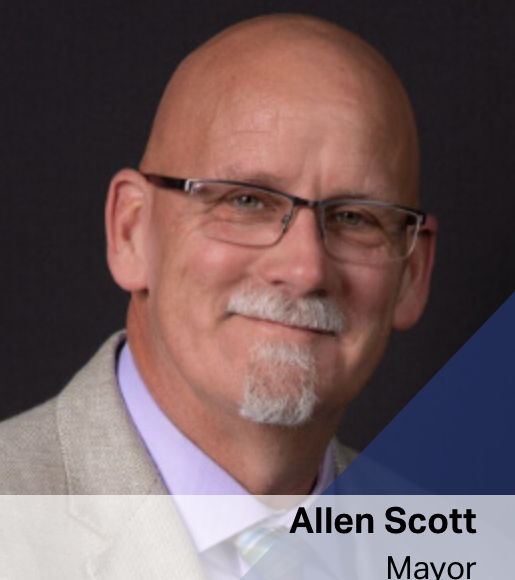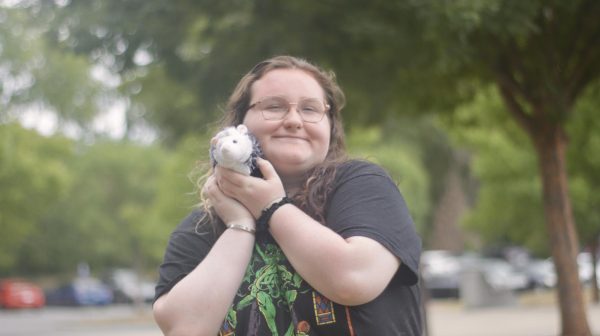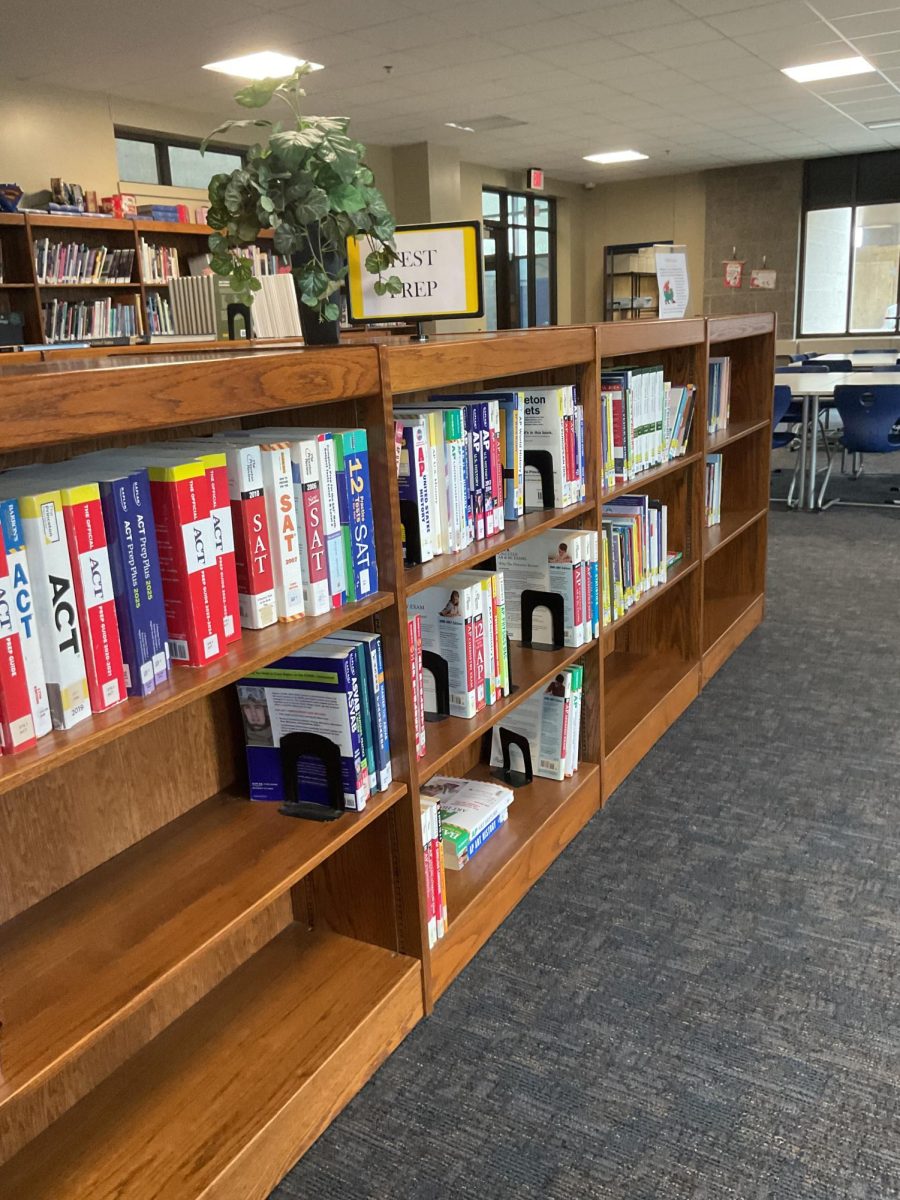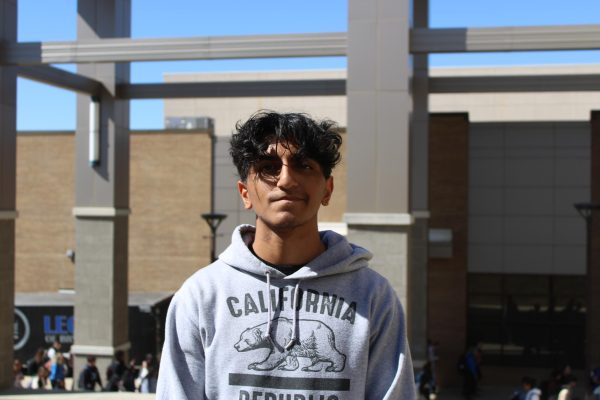The Importance of Voting
Bryant residents familiar with the voting process, including the mayor, explain why voting is important.

Official headshot of Mayor Allen Scott, provided by cityofbryant.com
March 28, 2023
This past November during midterm elections, Arkansans saw first-hand the tension between Democrats and Republicans, and more specifically Sarah Huckabee Sanders and Chris Jones. With this tension it’s important to realize how vital voting is; the policies politicians make could greatly affect someone’s life. However, this importance doesn’t seem to have hit a key portion of the population.
According to a research study conducted by the Knight Foundation, 43% of eligible voters chose not to vote in the 2016 election.The foundation hypothesized—and found in further studies—that people don’t vote because they feel like their vote won’t matter.
Will Heatherly, the school’s AP Government teacher, provided his own insight on why many people don’t vote.
“It is easy to look at an election with 150 million votes and convince oneself that a single vote is irrelevant,” Heatherly said. “Then couple that with the idea that most people do not feel a strong connection to the government or either political party and it makes it seem like voting makes no difference.”
As the mayor of Bryant and a former teacher at Bryant High School, mayor Allen Scott explained why voting is important, especially on the local level.
“You have a vested interest in local city government,” Scott said. “It affects your day-to-day lives much more than the state government or federal government because we’re right there with you. We understand what’s going on.”
Scott provided an example on why every vote counts.
“The first time I ran against my previous opponent, I won by 30 votes,” Scott said. “This time I won by 152 votes. So every vote matters.”
Heatherly agrees with Scott that local elections have a more direct impact on would-be voters.
“Your local elected officials can make decisions that could affect our lives almost instantaneously; placement of signs, traffic lights, building new roads or new schools, or changing zoning to allow or limit businesses are examples,” Heatherly said. “Over the long run, of course federal and state laws can be impactful, but unless there is a major event, local laws drive most of our interaction with the government on a daily basis.”
Another reason people don’t vote is because of a lack of information, especially on the local level. Because of this, I’ve asked Heatherly to explain how the local government runs.
“There are really three local entities that affect us: the county government, the city government, and to some degree the local school board,” Heatherly said. “All three are made up of elected officials and all three deal with a different aspect of our lives. This includes local traffic patterns, local sales taxes—which must be voter approved in most instances—county revenue offices, fire and police services and in some instances utilities, and of course local educational decisions as well.”
Scott explained that the elected officials of Bryant include the mayor, the city clerk, the city attorney, and eight council members. He also added that Saline County, and many other counties in Arkansas, are non-partisan.
“If you’re running for mayor or city council, you’re not running as a Democrat or Republican, you’re running just as a person for that position,” Scott said. “The bigger cities, a lot of times they have elected to go do partisan races, but honestly, I think that’s a disservice to the people in the city. On this level, I think it’s important to make sure that you’re accessible to all people, it doesn’t matter what their party is.”
Scott found that the lack of people voting affects those running for local elections as well.
“In this last election cycle, the mayor spot was the only one that was contested, meaning the only one that I had an opponent, and I think that’s bad,” Scott said. “We’re a city of about 21,000 people. And out of those 21,000 people, why were there only two people that wanted to be a council member in that ward?”
Scott believes that having that competition is extremely valuable in the election.
“I think it [having an opponent] helps keep you honest and helps keep you on track,” Scott said. “If you’re just running for reelection, especially on the council side, and you’re not having an opponent, then what’s the impact for you? Can you really be impactful for the people?”
With her birthday being in September, senior Allison Overton was able to vote in the 2022 midterms.
“I felt like it was something that as a citizen I should do because not many high school students get to have a say in government because a lot of them aren’t old enough and I felt like since I had the opportunity, I should take it,” Overton said.
Overton believes people don’t vote because they are under informed, and that the school can do more to inform its students.
“There’s an AP Government class but only around 20 people take it and there’s only one class period for it, and that’s a very small percentage of students who are in that class,” Overton said. “The school doesn’t really do anything besides offer that one class for that one class period.”
Overton offered a way that the schools can better inform the students.
“Whenever it’s getting close to election times there could be more information put out there about it,” Overton said. “I don’t think teachers necessarily should need to teach about it or anything like that, but the school should provide more information if a student wants it.”
Since not everyone at the school can vote, Scott provided ways in which minors can get involved.
“Get involved in student government, volunteer here and there, and learn more about the city and what the needs of the city are and see how you might have an idea to affect that change,” Scott said. “If they see an issue with something going on in the city, reach out to their council members, and try to get some resolution to that, reach out to the mayor, reach out to these elected officials and try to get resolution.”




